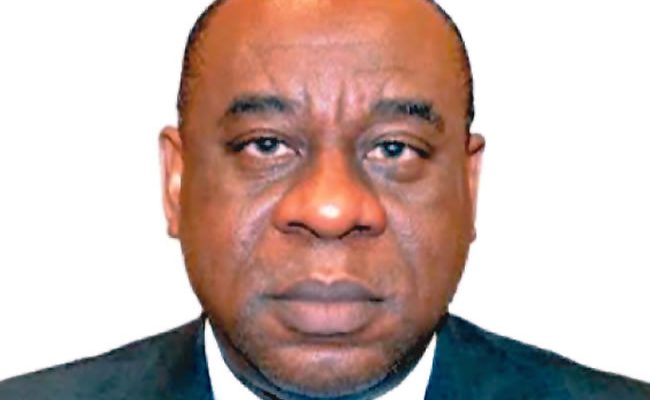

The recent abolition of segmentation in the foreign exchange (FX) market and collapsing of all rates into the Investors and Exporters (I&E) window has generated a lot of reactions. CHIMA NWOKOJI, in this report, examines the feelings of major stakeholders.
“The current move by the government to implement long-anticipated reforms such as the removal of costly and opaque petrol subsidy, and efforts to harmonise the multiple FX windows, are timely and crucial to set Nigeria on the path of economic growth,” said Shubham Chaudhuri, World Bank Country Director for Nigeria.
The Central Bank of Nigeria, (CBN) had on Wednesday June 14, collapsed all its multiple official Foreign Exchange (FX) rates into the Investors and Exporters (I&E) window.

The International Monetary Fund (IMF) representative in Nigeria, Mr Ari Aisen, in a statement, noted that this development had been a longstanding recommendation to Nigeria and that the Fund is ready to provide technical assistance to enable this policy to succeed.
This, and the statement attributed to Shubham Chaudhuri, World Bank Country Director for Nigeria marked the springboard for how the CBN’s approval rating has been on the rise since the reforms in the FX market.
On the domestic scene, stockbrokers said investors are reacting favourably to the news of the Central Bank’s commitment to market-determined forex prices. This policy shift, according to them is expected to enhance transparency and foster a more predictable foreign exchange market.

International oil companies in Nigeria are heaving a sigh of relief as they will get more Naira for their dollar earnings after the Central Bank recently permitted the companies to resume dollar sales to banks in a move aimed at injecting dollar liquidity into the Investors & Exporters window. This latest development means IOCs are no longer mandated to sell their dollars to the CBN at the artificially low price at which they sold prior to the Naira float last month. That leaves them with more Naira for their dollars as they will now be selling at a rate over 60 percent weaker than the previous rate.

The CBN is now focusing on boosting dollar supply to help ease the pressure on the Naira which lost over 60 percent of its value in one fell swoop following the long overdue reform. Already, the total inflows into the Investors and Exporters Window rose to $2.55 billion in the months of May and June, according to data obtained from the FMDQ.
The data indicated that total inflows into the 1&E window increased for the second consecutive month in June to $1.41 billion from $1.14 billion in May, following the unification of Naira rates. It is anticipated that this move will attract foreign investors and stimulate economic growth.
Market analysts have also expressed optimism about the potential positive impact of this new forex policy. They believe it will help stabilise the exchange rate, curb inflation, and create a more conducive environment for businesses to thrive.
Fitch Ratings, in a June 8, 2023 reaction, said President Bola Tinubu’s pledge to move towards a unified exchange rate are positive developments for Nigeria’s credit profile. Fitch Rating anticipates a phased exchange-rate liberalisation, moving the official rate closer to a market-clearing level.
“The approval of measures to securitise N23 trillion (around 11 percent of GDP) of the overdraft with CBN at a lower interest rate, of nine percent will help contain debt-servicing pressures,” the duo of Douglas Winslow, Senior Director, Sovereigns at Fitch Ratings Ltd and Toby Iles, Head of Middle East and Africa Sovereigns who signed the report stated.
In a July 10, 2023 report titled “Unearthing Potential Pass-through of Policy Rejigs,”Cardinal Stone investment advisory stated, “In our view, these reforms have opened up a seismic shift in the Nigerian banking sector outlook, with banks reassessing their operational capabilities to capture opportunities whilst repealing existential threats.”
The CBN’s decision to float the currency has been hailed by the organised private sector and economists who said the move would sanitise the FX market.
Agusto & Co, a foremost Nigerian rating agency in a recent monthly publication stated that in the medium term, unification is likely to ensure a minimal differential of 5-10 percent between the Investors and Exporters (IE) FX window and the parallel market, which should lower uncertainty, reduce the opportunity for round tripping and enhance investor confidence.
“The new exchange rate framework is expected to increase transparency in the forex market, reduce currency risks and transaction costs, while also bolstering investor confidence. We believe that an equilibrium (market-clearing) exchange rate would achieve both internal and external balances and promote efficient resource allocation while also doubling as a strategic tool to make exports more competitive. We are also of the opinion that the CBN should now eliminate currency restrictions and adjust its approach towards accomplishing the import substitution objective within its development strategy,” the rating agency stated.
The CBN, Augusto & Co stated, has scrapped a cap on dollar deposits into domiciliary accounts while also easing restrictions to allow account holders to use up to $10,000 a day for transactions. The hope is that account holders can sell their dollars to banks and the banks, in turn, can use it to fund obligations, boosting market liquidity.
“Exporters will also be incentivised by the slump in the official exchange rate and as a result, we expect increased non-oil export declarations, which will support FX supply. A unified exchange rate would also incentivise remittance inflows through official channels, which amounted to $20.9 billion in 2022, further boosting FX supply.
“The exchange rate adjustment will have a positive impact on Nigeria’s dollar-denominated earnings. We anticipate a minimum rise in export and gross oil &gas revenues of ₦10 trillion and ₦5 trillion, respectively, in 2023. Increased revenue to the federation account will allow the federal and sub-national governments to better balance their books and possibly review public sector wages upwards,” it further stated.
In recent years, inadequate FX supply from official sources has compelled most businesses to resort to the parallel market. A unified exchange rate, at a rate, which we estimate should be stronger than the current parallel market rate, will lower the cost of raw materials for businesses as well as level the playing field against some of its competitors, which may have had significantly greater access to FX at the official exchange rate.
Speaking on the development, a finance analyst and the president, Association of Capital Markets Academics (ACMAN), Professor Uche Uwaleke, said the implication of the new Fx policy is that the revenue for the three tiers of government will be huge, but foreign debt may double.
Prof. Uwaleke said, “The new Fx regime will definitely see a rise in FAAC allocation, as evident in May allocation which has increased to N786 billion. Also, another advantage is that there will be increase in naira in terms of dollar denominated assets held by state governments.”
Taiwo Oyedele, a fiscal policy partner and Africa Tax Leader at PwC said that on a positive note, governments’ revenue would rise in naira terms resulting in a higher tax, revenue to Gross Domestic Product (GDP) ratio.
Indeed, analysts believe, that the Federal Account and Allocation Commission (FAAC), disbursements to the federal, state and local governments is set to hit a record N1 trillion following unification of Nigeria’s exchange rates at the Investors and Exporters (I & E) window, analysts have said.
Nigeria’s earnings in terms of oil revenue were before now measured using the official N460 to $1 official exchange rate. However, with the floating of the naira, which is now over N730 to $1, it implies that the country will be making almost double revenue from the sale of crude oil.
Also, Oyedele stated that there would be a possible reduction in budget deficit and some cost savings.
“With the Nigerian Naira now exchanging in the official forex market at market determined rates, a significant market distortion has been removed.
“Impact on diaspora remittances would be marginal; the capital market will benefit as it is likely to appreciate further as foreign investors take position. There should be negligible impact on the general prices of goods and services as products already factored in parallel market rates to a large extent. Overall, this is a positive move,” Oyedele stated.
“The aggregate demand for forex across markets should reduce as round-tripping incentive is removed, for instance people who fake foreign travels just to get fx at discounted rates. Also, Nigeria’s sovereign credit rating should improve if this is complemented with the right fiscal and monetary policies thereby attracting more FX inflows and lowering the cost of borrowing”, he emphasised.
According to a public affairs analyst, Eze Onyekpere, the key advantages of the new regime would include the fact that any foreign exchange income to the government would now be monetised at the new unified rate which is far higher than the old Central Bank of Nigeria artificial rate of about N435 to the dollar.
“The second advantage is that it will boost repatriation of export proceeds. The Nigerian exporter whose export proceeds were tied to the lower official exchange rates found ways of withholding their proceeds and keeping it out of the country thereby starving the economy of much needed foreign exchange. It takes only an irrational fellow to seek to exchange the dollar at N435 when it is common knowledge that the real rate is about N750. Exporters will earn more money and this will encourage exports which in turn will shore up the value of the naira with increased inflow of foreign currency.
“The third advantage is that there will be inflow of foreign direct investments and portfolio investments. Foreign investors have withheld investments in Nigeria because they were free to bring in their capital in foreign exchange but found it literally impossible to repatriate their profits. In essence, their capital has been tied down and no investor invests without a reasonable hope of gaining access to their profits. The new exchange regime liberalises the system and allows investors to bring in their capital and easily repatriate profits. The capital market which lost the patronage of foreign investors is expected to rebound because Nigerian share prices are peanuts when compared with the value of stocks,” Onyekwere stated.
READ ALSO FROM NIGERIAN TRIBUNE









